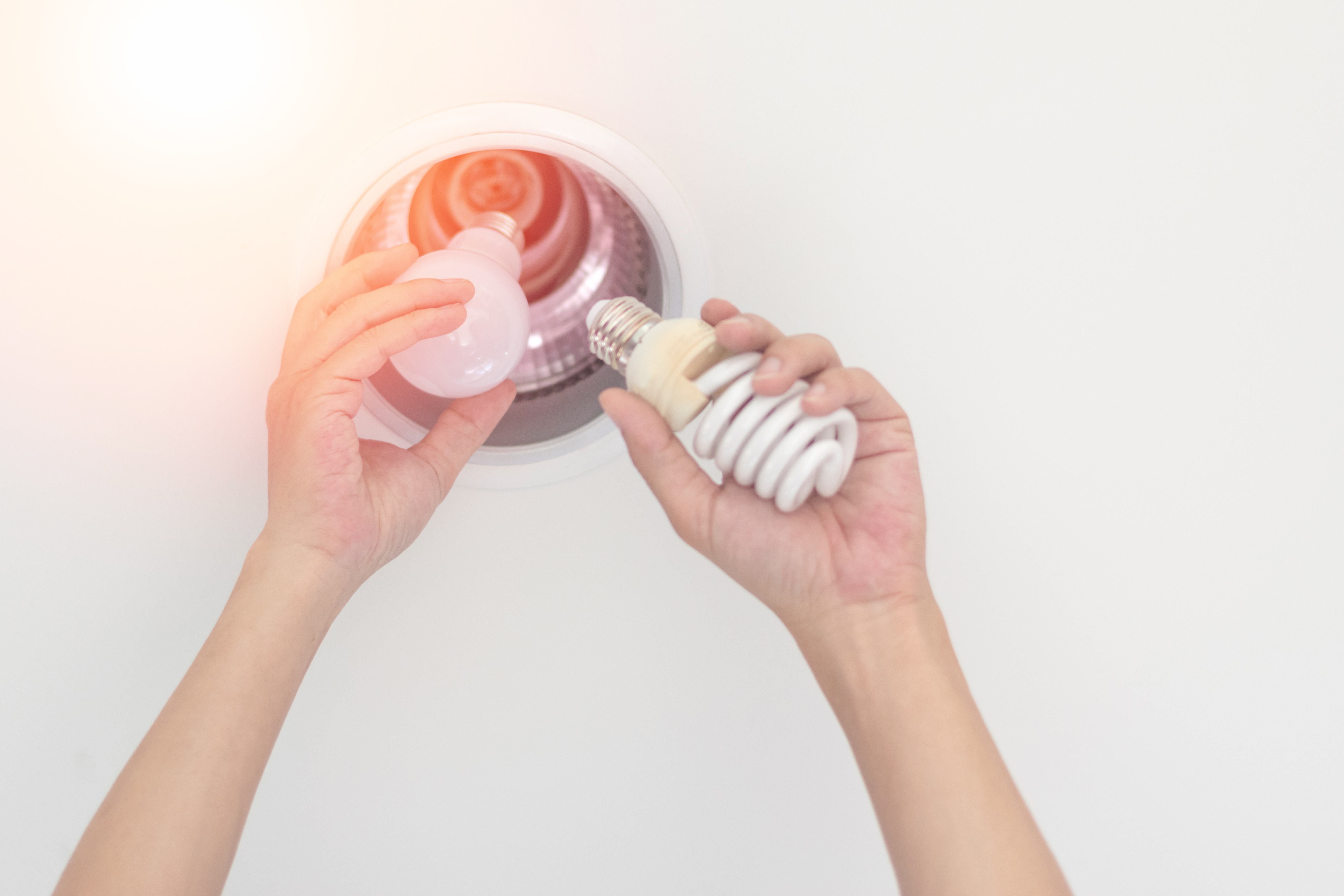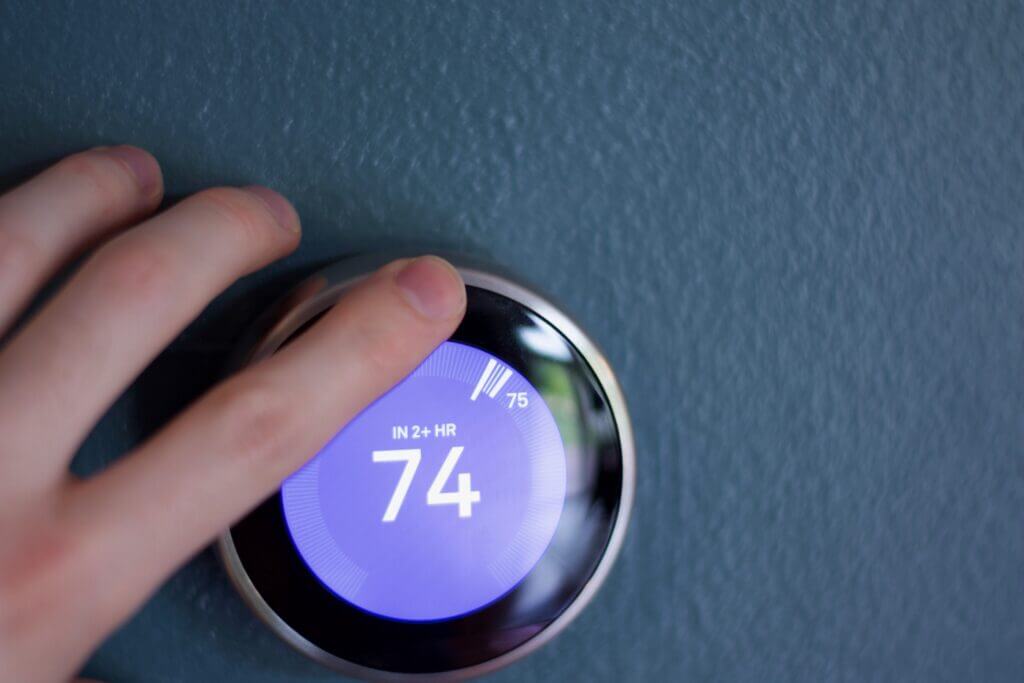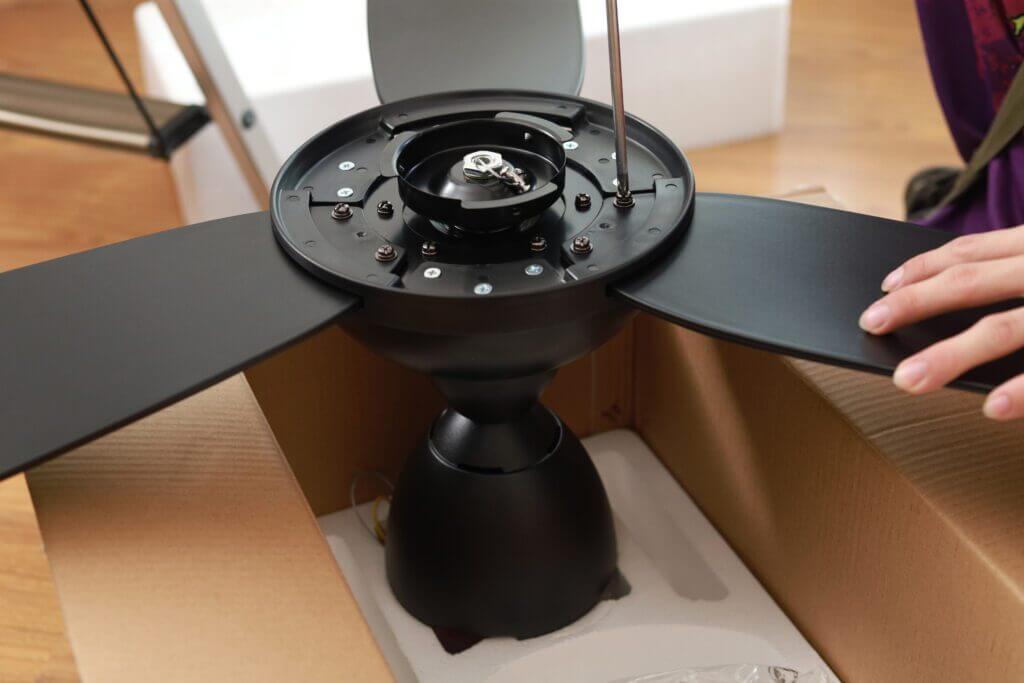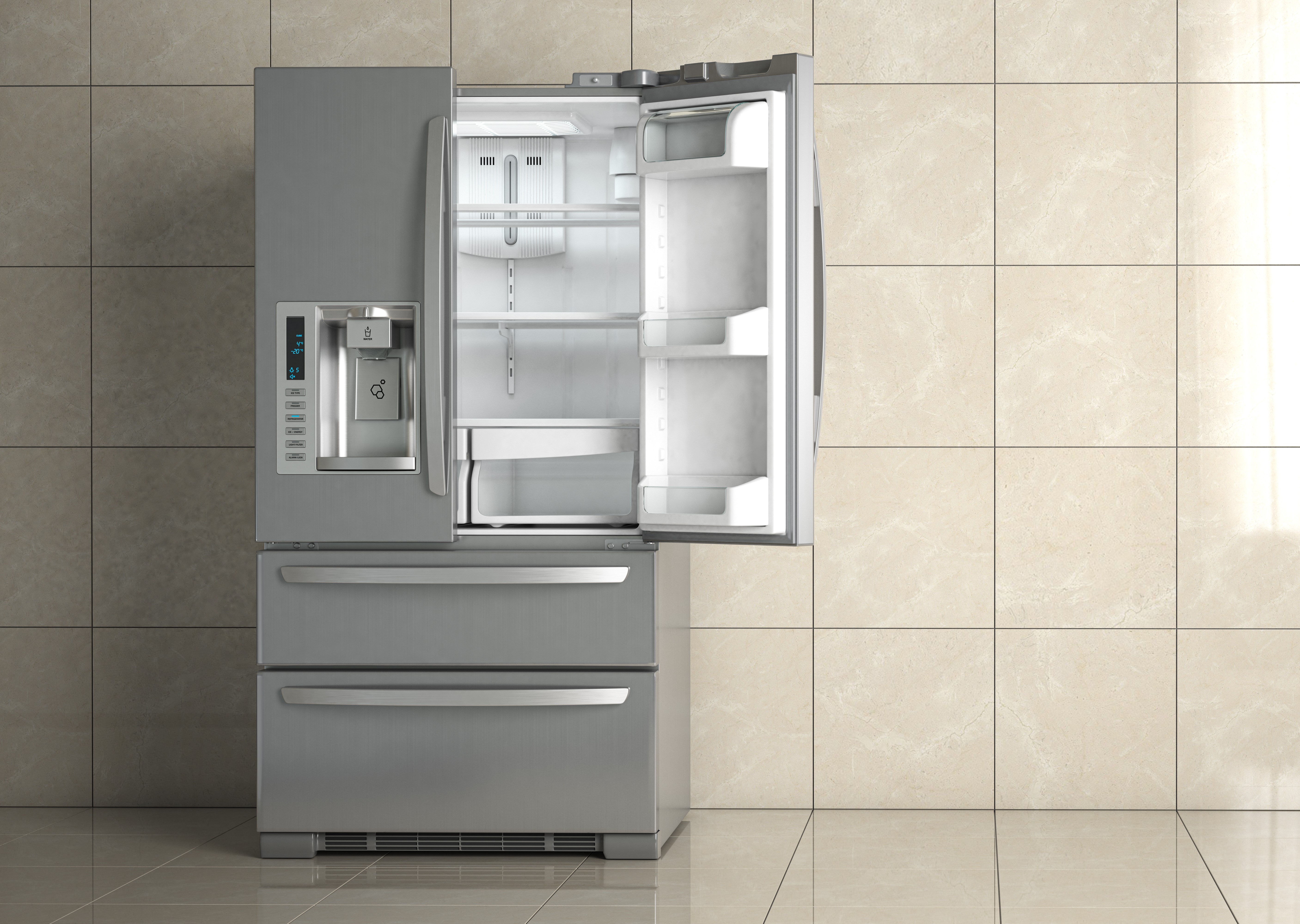Doing a few minor energy-efficient home upgrades can result in significant savings if done right.
From minor updates such as installing LED lightbulbs throughout your home to major renovations such as replacing all of your windows, these changes add up quickly.
Switch all lights out with LEDs.

The average home in the United States has 45 light bulbs. Think about that. That is a lot of light! Chances are, your home isn’t far from that.
Now imagine how much energy those 45 bulbs consume.
Upgrading the lights throughout your home with energy-efficient LED lights is a fantastic and inexpensive upgrade to save a lot of money on the monthly bill.
LEDs have a different technology that allows them to have a better lifespan and save on energy costs over time because they’re more efficient. To take it a step further, you can look into intelligent home switches that allow you to control lights from your phone.
Replace old attic insulation.
Replacing insulation in your attic is a simple way to significantly reduce energy costs since heating and cooling your home accounts for ~65% of your total energy bill each month!
The more / better insulation you have in your attic, the less heat will escape from the inside of your home. This means that it will be easier to keep warm in the winter and cooler in the summer.
Old insulation becomes weak over time, which allows heat to escape more efficiently during the winter months when you need it most.
A quick and inexpensive way to replace or supplement your attic insulation is to add blown-in insulation. It goes in fast, lasts a long time, and does a great job of insulating your home.
Install new energy-efficient windows.
Installing energy-efficient windows in your house can save you up to $150 per year on heating bills.
Newer, well-insulated windows usually have two panes of glass with an insulating space in the middle. Older single-pane windows have one piece of glass, which doesn’t provide much insulation at all.
There are additional options with windows that will save on your energy bills as well. You could opt to get Low-E windows, which keep IR/UV light from entering your home, and upgraded frames.
Although not the quickest or cheapest way to be more energy-efficient, windows make a huge impact when it comes to keeping your HVAC unit from running in overtime.
Upgrade to a new smart thermostat.

A programmable thermostat will allow your home to automatically adjust your home’s temperature for when you need it the most.
Why keep cooling your home while you’re away at work for 10 hours? There’s no point in your HVAC unit to keep running to hold a temperature if nobody is home to enjoy it.
With a smart thermostat, you can have the temperature set for a comfortable setting just before you return home.
Cutting the time your air conditioner or heater is running throughout the day will reflect on your wallet at the end of the month.
Add some ceiling fans throughout your home.
Ceiling fans are a staple in most modern homes throughout the US, for a good reason.

These multi-blade fans work to make your home feel more comfortable all day. They come in a variety of different blade designs and shapes, which means you can find one that will match the decor of your rooms.
However, the best part is that ceiling fans circulate the air throughout the room, making it feel warmer or cooler depending on what time of year it is outside.
It’s a great way to save money on energy bills because it takes less electricity to power a ceiling fan than an electric heater or air conditioning unit!
Ceiling fans are a great DIY project that just about anyone can handle. For under $100 and about 30 minutes of your time, you can start keeping the rooms throughout your home at a comfortable temperature.
Change out energy-sucking appliances.
According to the Department of Energy, refrigerators and air conditioners are the most common energy-sucking appliances in a home.

Just like the windows, these are considered a significant purchase but worth it. Depending on the model, the savings alone would pay for the refrigerator in just a few years.
If they’re old or not as efficient as they could be, you might as well upgrade them now! Newer models will save you time and money by using less electricity to power up.
While you’re at it, upgrading your washer and dryer can save on both water and electricity. Newer models are designed to wash your clothes better while minimizing the use of water and electricity.
Honorable mention: weather stripping.
Not an upgrade, but rather a fix. Weatherstripping is the cheapest way (and probably the easiest of the group) to make a big difference.
Weatherstripping works by sealing up gaps throughout your home that expose the inside to the outside. When that happens, your HVAC unit is going to try harder to maintain a steady temperature.
Can you see light coming in from around a door or window? Throw on some weather stripping to patch up that space.
Sometimes there are no spaces or gaps to fill, so you can only do one of the other measures. So walk through your home and check for places that would be ideal for installing some weather stripping.
If you’re looking for ways to save money on your monthly energy bills, many home improvements can be made yourself in a weekend with little cost. These are just some of the best home upgrades to save on energy bills and a great start on your journey to make your home efficient.
Do you have any other ideas for how you can upgrade your home for energy efficiency? We would love to hear your thoughts!
